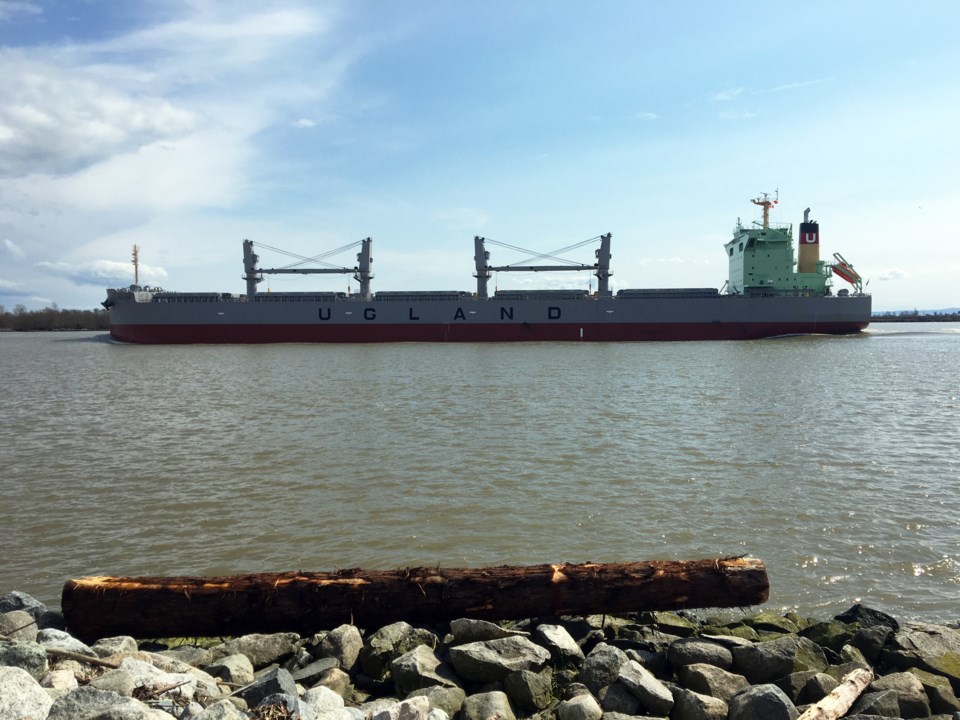Port of Vancouver sees no problem in growing itself and having other West Coast ports expand as well.
In response to stern criticism from Steveston-Richmond East MP Joe Peschisolido on Canada’s port authority system, Duncan Wilson, Vancouver Fraser Port Authority’s vice-president of corporate social responsibility, told the Richmond News his organization does and will work collaboratively with other ports, such as Port of Prince Rupert.
“It’s very much about working together,” said Duncan.
Peschisolido told a small town hall May 15 in Steveston that he doesn’t believe port authorities, particularly Vancouver Fraser Port Authority (VFPA - which manages Port of Vancouver), are working in unison for the greater national interest. Instead, such entities, which are to manage federal land, have institutional biases and are competing with one another by expanding their scope beyond the mandate laid out by government.
But Duncan said it will be critical to expand capacity in Vancouver as well as elsewhere. He said container capacity in the Lower Mainland will run out in 2025.
Duncan said it is the port authority’s job to facilitate trade. And so, for example, with the proposed Roberts Bank Terminal II, the port authority is merely building the land for a to-be-determined private terminal operator.
“We’re in the land creation business, if you will. We look for opportunities to create or protect land,” said Duncan.
He noted there are advantages to expanding port operations in Metro Vancouver, due to its proximity to an urban core and three rail lines.
While Peschisolido has criticized the VFPA's CEO Robin Silvester for entering the policy-making realm, Duncan said the port authority is merely in the best position to provide input, although there is room for improvement on collaboration with all levels of government on land use.
Silvester did not make himself available for an interview.
The fact that VFPA chooses seven of 11 directors for its board has led to allegations (such as from the City of Richmond) that it is unwilling to collaborate. Duncan said the board only meets six times a year and that the port has VFPA executives delegated to liaise with local councils.
A major criticism of VFPA has been its purchase of Gilmore Farm in east Richmond. Duncan said the land remains under study. He noted the port only owns 0.16 per cent of farmland in the region. He also noted about one-fifth of farmland is not in production, another fifth is used for other purposes (golf courses) and other properties are being converted into single-family estate homes.
“So the port is not a threat to agricultural land as it’s made out to be,” he said, noting the port’s priority is to establish an industrial land bank as municipalities continue to rezone such land for residential purposes.
Asked why VFPA leases land to non-transportation related companies, such as Harvest Power, Duncan acknowledged Harvest’s lease is not ideal and would likely not be renewed if the opportunity presented itself.
With respect to other criticisms, including from environmentalists, Duncan said the port authority has a clear mandate to facilitate trade as well as protect the environment. Hence why VFPA has its own team of biologists and environmental officers.
Duncan said the port authority believes the current framework for reviewing projects is satisfactory. A common critique is that the threshold for a federal environmental review is too high (such as there being no federal review for a jet fuel facility on the Fraser River).
With regards to the George Massey Tunnel, Duncan countered Peschisolido’s assertion that VFPA was jamming the tunnel with truck traffic by noting just two per cent of vehicles at rush hour are container trucks heading to and from port land.



